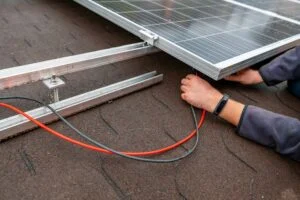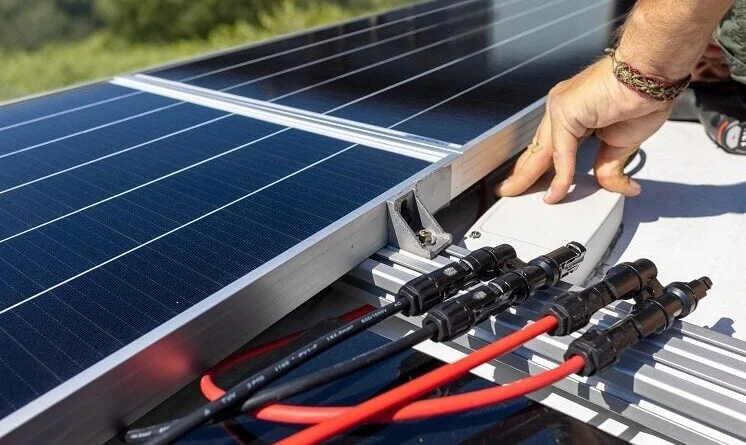Solar Cable Price in Pakistan: Impact of Material

As the world moves toward sustainable energy solutions, Pakistan is not far behind in embracing the green energy revolution. Solar energy is rapidly gaining popularity as a reliable and eco-friendly power source. Central to the efficient functioning of solar power systems is the quality and type of cables used. In this post, we will delve into the solar cable price in Pakistan and explore the specifics of the 16mm solar cable price in Pakistan.
Table of Contents
The Shift to Solar Cable Price in Pakistan
Pakistan’s energy sector has long been dominated by fossil fuels, leading to high levels of pollution and unsustainable energy practices. However, in recent years, there has been a significant shift towards renewable energy sources, with solar power taking the lead. This transition is driven by several factors:
- Abundant Solar Resources: Pakistan is geographically blessed with abundant sunlight, making it an ideal location for harnessing solar energy.
- Government Initiatives: The government has introduced various incentives and policies to promote the adoption of solar energy, including tax exemptions and subsidies.
- Environmental Concerns: Increasing awareness about environmental sustainability has encouraged both individuals and businesses to invest in solar power.
Importance of Quality Solar Cables
Solar cables are crucial for the effective transmission of power generated by solar panels to the inverters and ultimately to the grid or battery storage systems. The performance and longevity of a solar power system largely depend on the quality of the cables used. Key considerations include:
- Durability: Solar cables must withstand extreme weather conditions, including high temperatures, UV radiation, and mechanical stress.
- Efficiency: High-quality cables ensure minimal power loss during transmission, enhancing the overall efficiency of the solar power system.
- Safety: Proper insulation and resistance to fire hazards are essential to ensure the safe operation of solar power systems.
Analyzing the Solar Cable Price in Pakistan
The solar cable price in Pakistan varies based on several factors, including the type of cable, its specifications, and the manufacturer. Here’s a detailed breakdown:
- Type of Solar Cable:
- Single-Core vs. Multi-Core: Single-core cables are typically used for simpler installations, while multi-core cables are preferred for more complex setups.
- Flexible vs. Rigid: Flexible cables are easier to install and manage, especially in systems with multiple connections and bends.
- Specifications:
- Conductor Material: Copper and aluminum are the most common conductor materials. Copper, though more expensive, offers better conductivity and durability.
- Insulation: High-quality insulation materials, such as XLPE (Cross-linked Polyethylene), enhance the cable’s resistance to environmental stressors.
- Cross-Sectional Area: The cross-sectional area of the cable determines its current-carrying capacity. The 16mm solar cable price in Pakistan is a key example, as this size is widely used for its balance between capacity and manageability.
- Brand and Manufacturer:
- Reputable brands and manufacturers often command higher prices due to their proven track record of quality and reliability.
- Local vs. Imported: Locally manufactured cables are generally more affordable, while imported cables may offer advanced features and better quality assurance.
Spotlight on 16mm Solar Cable Price in Pakistan
The 16mm solar cable price in Pakistan is a significant consideration for many solar power system installations. This specific size is popular due to its versatility and efficiency in medium to large-scale installations. Here are some factors influencing its price:
- Material Quality: The quality of the conductor and insulation materials greatly impacts the price. High-purity copper conductors and advanced insulation materials like XLPE increase the cost but also improve performance and longevity.
- Certifications and Standards: Cables that comply with international standards and certifications, such as TUV, IEC, and UL, tend to be more expensive but offer greater assurance of quality and safety.
- Market Demand: The rising demand for solar power systems in Pakistan has led to increased competition among suppliers, affecting the prices of solar cables, including the 16mm solar cable price in Pakistan.
Cost Analysis and Recommendations
To provide a clearer picture, let’s look at some approximate price ranges for solar cables in Pakistan:
- Single-core copper solar cable price in Pakistan: PKR 150 to PKR 400 per meter, depending on the cross-sectional area and insulation quality.
- Multi-Core Copper: PKR 300 to PKR 800 per meter, with higher prices for better insulation and larger cross-sectional areas.
- 16mm Solar: The 16mm solar cable price in Pakistan typically ranges from PKR 500 to PKR 1,200 per meter, influenced by the factors mentioned above.
When purchasing solar cables, it is essential to balance cost and quality. While it might be tempting to opt for cheaper options, investing in high-quality cables ensures the long-term efficiency and safety of your solar power system. Here are some tips for making an informed decision:
- Research and Compare: Conduct thorough research on different brands and suppliers. Compare their offerings, read customer reviews, and check for certifications.
- Consult Experts: Seek advice from professionals in the solar energy field. They can provide valuable insights into the best cable types and brands for your specific needs.
- Consider Long-Term Benefits: Higher initial costs for quality cables can lead to significant savings in the long run by reducing maintenance costs and improving system efficiency.
Conclusion
The growing adoption of solar energy in Pakistan is a positive step towards a sustainable future. Understanding the solar cable price in Pakistan specifically the 16mm solar cable price in Pakistan is crucial for making informed decisions when setting up power systems. By prioritizing quality and efficiency, individuals and businesses can ensure that their investment in solar energy yields optimal returns and contributes to environmental conservation.


